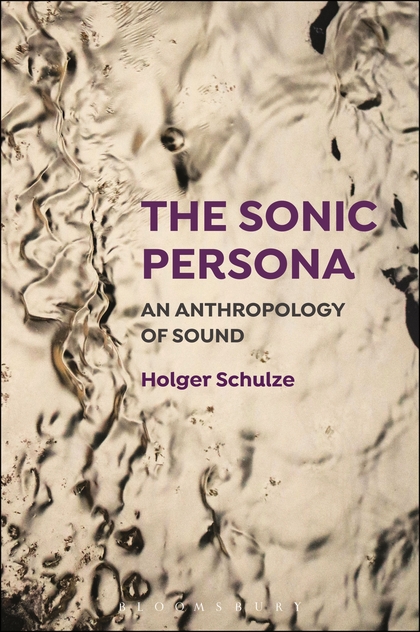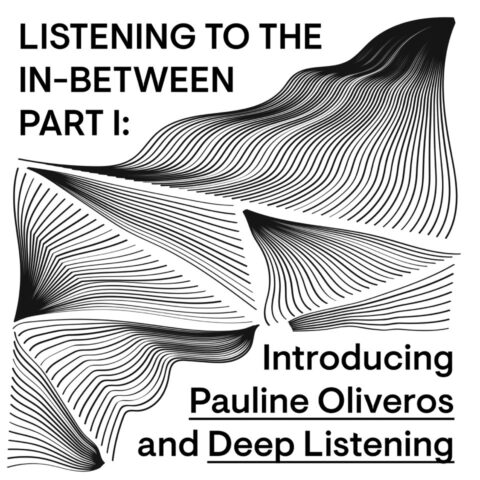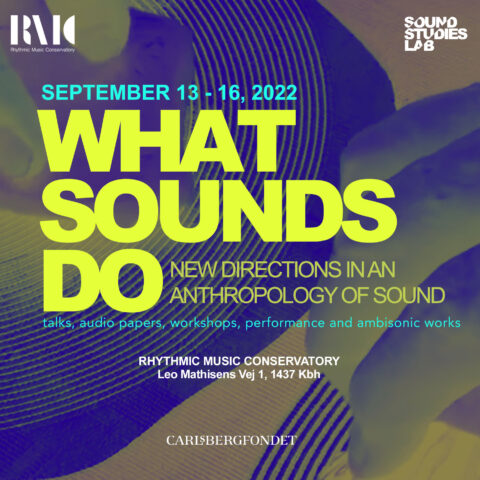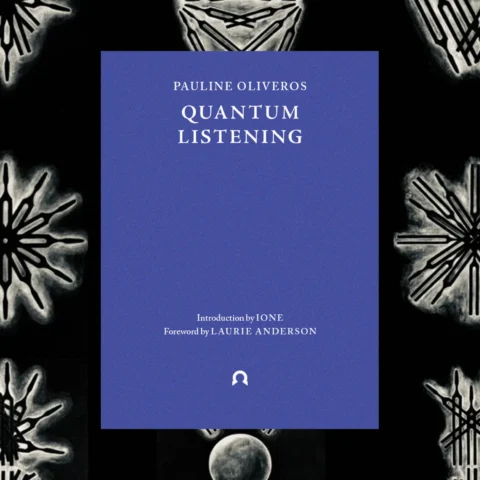There are new sound books around, some released in recent months, others to arrive soon, all of them written by well-known authors in the field.
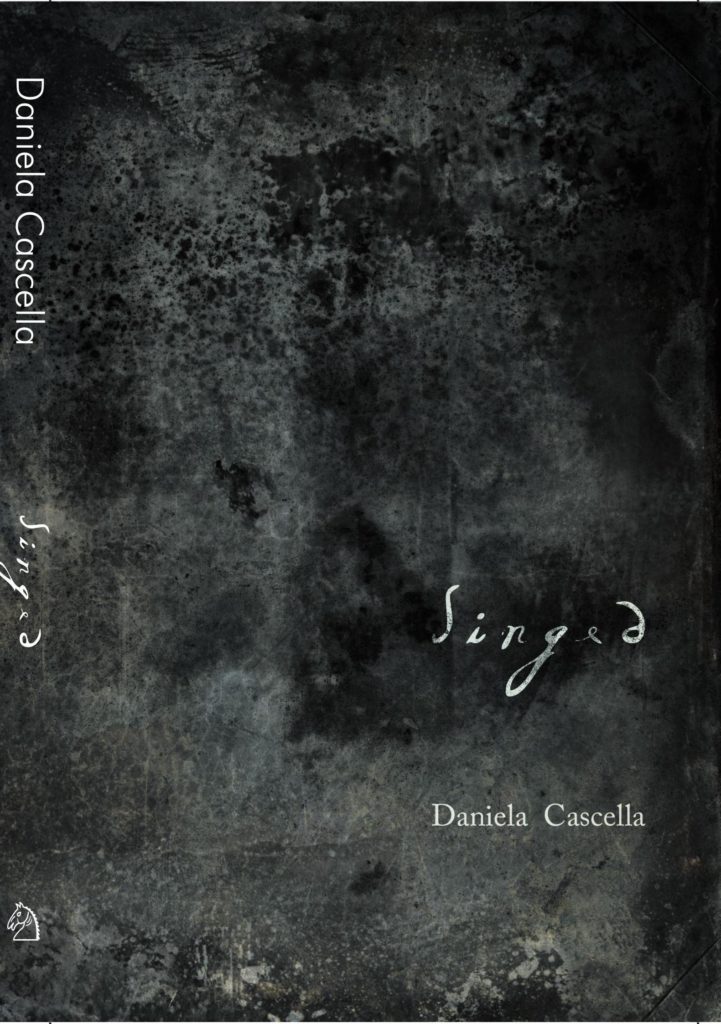
Singed, by Daniela Cascella
“It starts with no story but a circular / It starts with no story but a spinning / It starts with no story but a spinning into before that is to come…” Daniela Cascella’s Singed: Muted voice-transmissions, after the fire starts not with creation, but destruction – a library ravaged by fire. What of the singed debris can be salvaged? Which of the disfigured inkblots deciphered? How much will be remembered? Re-written, re-invented, re-imagined? Singed, only to sing again?
The condition of instability permeating Cascella’s project is already conveyed by the book’s title, Singed, at once a reference to burning/singeing and a mistaken past form of “to sing.” The title thus posits writing as located at the interference of a burning and a singing, unmaking and making meaning. Writing, not foreknown or guaranteed, can here only be enchanted through rhythmic events: “Of hearing a rhythm in reading, a song sometime, voices sound words, wh-h mh-m maybe that is why.”
Singed carries further what Cascella began in her previous two books, En Abîme: Listening, Reading, Writing (Zero, 2012) and F.M.R.L.: Footnotes, Mirages, Refrains and Leftovers of Writing Sound (Zero, 2015). In the former, she explored listening and reading as memory-based activities both creative and critical; the latter’s “deranged essays” operated across sonic patterns, assonance, repetitions, and complemented reading with voicing.
A synthesis of the two projects, Singed performs a transmission of knowledge in a condition of instability across languages, media and cultures. The text attempts a multilingual type of writing, not “in translation,” but in “trance-lation”: between languages, ceaselessly trancelating words, rhythms and silences in a state of otherness in motion. In Singed, Cascella presents memory as sonically associative (“Will the song’s murmur muster a mourning?”), meditating on how to undertake writing vis-à-vis silence.
“The smell of singed paper haunts me. Is this a burning, is it a song? Sing, singed.” Cascella’s radically experimental poiesis conceives of text as a space of doing but also stillness, of transmission but also interference. In Singed she writes criticism that includes silence, repetitions and dead ends; that retains mystery and the unspoken, in a language out of synch; that interrogates the very the necessity of using language: “Where does the necessity to speak and write arise from, and what are the hooks I can hold on to in the absence of records?”
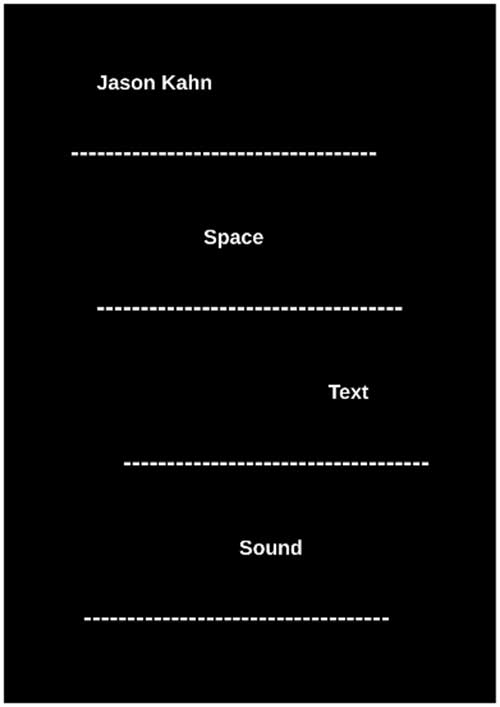
Space Text Sound, by Jason Kahn
Space Text Sound documents text material used in three of my recent installations: An Attempt at Exhausting a Place in Hong Kong (After Perec) (2016), Drifting (2016) and Other Ghosts (2015). All three of these works investigate the nexus points between the production of space through sound and how text can be used to reflect on this process. I’m interested in how words can convey the sense of place sounds can and, beyond this, how these words impart a feeling for inner spaces, often more commonly referred to as reading between the lines. By entering this inner space of text we can also approach the notion of hearing between the sounds, sensitizing ourselves to that void where spaces form, mutate, collide. Reading through these texts after the installations were long over, I found that they stood on their own apart from the greater works they were initially a component of and therefore valid standing on their own presented in book form.
The Sonic Persona, by Holger Schulze
In The Sonic Persona, Holger Schulze undertakes a critical study of some of the most influential studies in sound since the 19th century in the natural sciences, the engineering sciences, and in media theory, confronting them with contemporary artistic practices, with experimental critique, and with disturbing sonic experiences.
From Hermann von Helmholtz to Miley Cyrus, from FLUXUS to the Arab Spring, from Wavefield Synthesis to otoacoustic emissions, from premillennial clubculture to postdemocratic authoritarianism, from signal processing to human echolocation: This book presents a fundamental critique concerning recent sound theories and their anthropological concepts – and proposes an alternate, a more plastic, a visceral framework for research in the field of a cultural anthropology of sounding and listening.
This anthropology of sound takes its readers and listeners on a research expedition to the multitude of alien humanoids and their surprising sonic personae: in dynamic and generative tension between predetermined auditory dispositives, miniscule and not seldomly ignored sound practices, and idiosyncratic sensory corpuses: a critique of the senses.
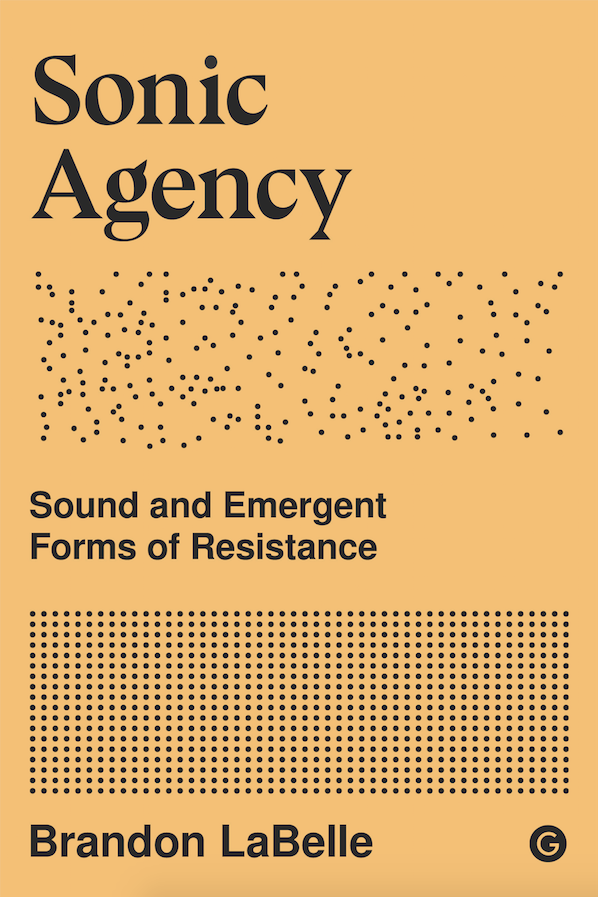
Sonic Agency: Sound and Emergent Forms of Resistance, by Brandon LaBelle
In a world dominated by the visual, could contemporary resistance be auditory? Sonic Agency highlights sound’s invisible, disruptive, and affective qualities, and asks whether the unseen nature of sound can support a political transformation. In this timely and important book, author Brandon LaBelle sets out to engage contemporary social and political crises by way of sonic thought and imagination. He divides sound’s functions into four figures of resistance – the invisible, the overheard, the itinerant and the weak – and argues for their role in creating alternative “unlikely publics” in which to foster mutuality and dissent. He highlights existing sonic cultures and social initiatives that utilize or deploy sound and listening to address conflict, and points to their work as models for a wider movement. By examining the experience of listening and being heard, LaBelle illuminates a path from the margins toward hope, citizenship, and vibrancy. When the current climate has left many feeling they have lost their voice, it may be sound itself which restores it to them.


